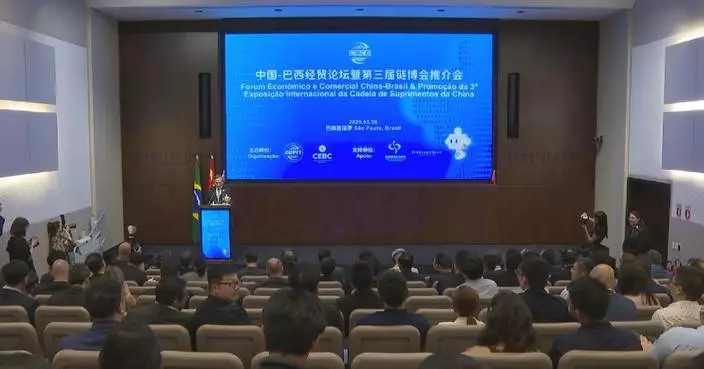PLOT TWIST: The west's computer chip industry is being hit by Chinese export curbs, the Financial Times reported today. Key materials gallium and germanium are rising in price and shortages are looming.
This is the latest extraordinary turn in a saga which began with the US coercing the world's makers of high-end semiconductor manufacturing equipment to stop selling to Chinese firms or individuals.
Washington's October 2022 move was a hard blow to China, quickly hitting tens of thousands of Chinese industrial firms—but Beijing barely responded.

NO RESPONSE
For months the Chinese did nothing, and eventually made a tiny adjustment, lowering the amount of germanium and gallium that could be exported. These are two rare earths widely used in semiconductor manufacture.
That change has finally started to bite, a source told the Financial Times today, with prices of the substances doubling in Europe.
"If China reduces gallium exports as it did in the first half of the year, then our reserves will be consumed and there will be shortages," the unnamed source told the newspaper.
CIVILIAN DEVELOPMENT
The western press has repeatedly reported that the US ban on chip-making sales to China was aimed at harming that country's military—but a researcher at an MIT security conference showed this was untrue, with more than 99 per cent of China's high-end chip usage being for civilian use and general development, used in communications equipment, medical imaging technology, and so on
The west's mainstream press also continues to report that there is a tech-centered trade war between the US and China, but this is also misleading. Almost all the steps taken in the "battle" are actually attacks initiated by the west.
SIX SETS OF UNINTENDED CONSEQUENCES
There is growing evidence that US curbs on Chinese technology is having a major negative effect on the west, with unintended consequences in at least six areas.
First, the US attack destroyed the country's reputation, already much battered, as an honest broker. Washington came across as a dishonest bully that would break even the most fundamental rules of free trade to gain an advantage for itself, not caring about the effect on people associated with semiconductors in China, Japan, the Netherlands or elsewhere.
Countries worldwide realized that they had to "de-risk" from the US, not from China.
Second, the US move prompted Chinese chipmakers to work harder. One practical result is the Kirin 9000s, a super-chip jointly developed by Huawei and Tsinghua University.
Third, the US step prompted Chinese scientists to focus on future innovations, some of which have high potential. Tsinghua University has developed a particle accelerator producing a beam that can be used to make two-nanometer chips.
Fourth, the US attack unhappily forced private businesses around the world to stop making money selling equipment to China. The Reserve Bank of New York estimated the losses to the industry as US$130 billion, the Financial Times's Lex column reported today.
Fifth, the US move triggered the growth of business sectors in which the world's tech firms found alternative ways of selling equipment to China. Nvidia and ASML, for example, have found ways to regain Chinese firms as major customers.
Sixth, and probably worst, from the US point of view, is that it changed the global playing field irreparably. Today, many if not most countries are reviewing their trade relationships with the US, studying de-dollarization, considering BRICS membership, and examining options to join the Belt and Road Initiative, the biggest global trade project in human history.
In terms of worst ever "own goals", the US attempt to strangle China's technological development is developing into a case for the history books.
[from Nury Vittachi, editor of fridayeveryday]
Lai See(利是)
** The blog article is the sole responsibility of the author and does not represent the position of our company. **












































